In most cases, roofing and siding are done simultaneously during construction. Roofing nails are primarily used for roofing but have many other uses in fencing and other construction purposes. These nails are strong, long, and durable, but can they be used for Hardie siding? We asked some siding experts, and here's what they had to say.
Roofing nails cannot be used with rigid siding. Due to their length, head size, and durability level. These nails are not suitable for Hardie siding. It is important to know that other types of nails are better for siding.
Roof nails will not serve this purpose, but another type of nail will. Read on as we learn about the types of nails available for Hardie siding and other important points you need to know about sidings.
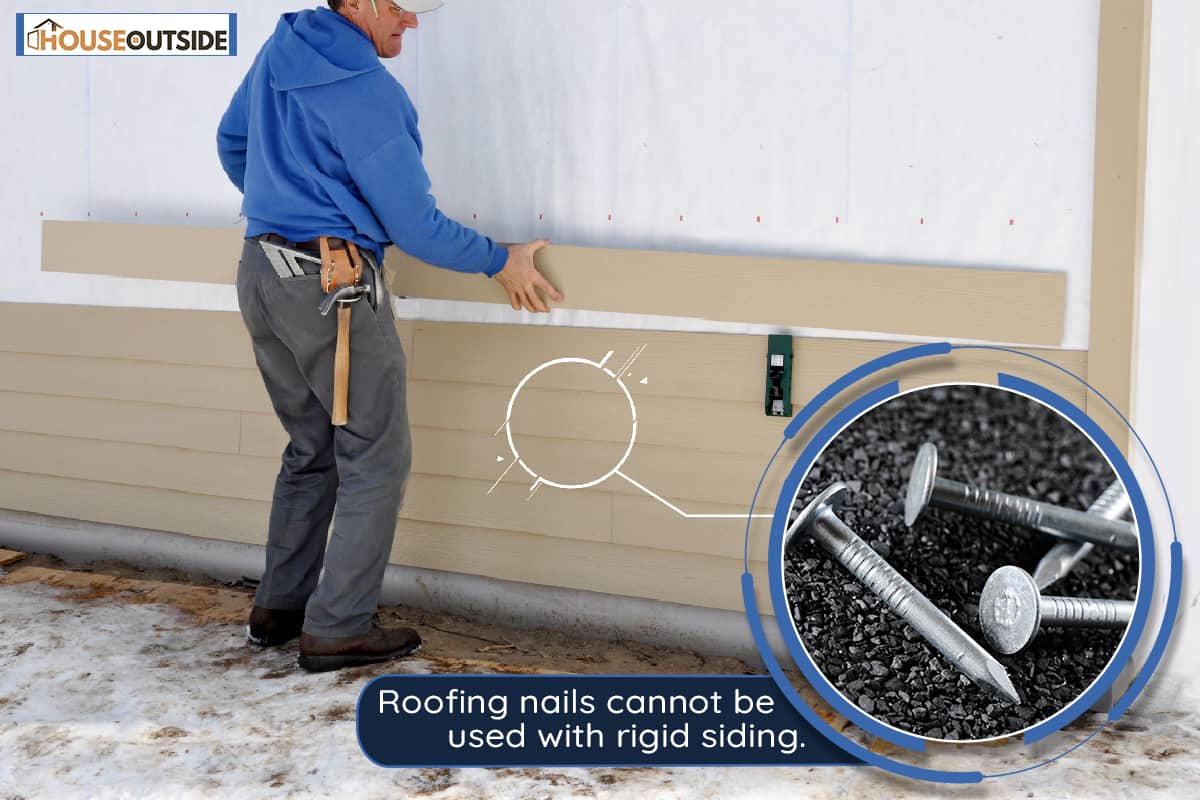
What is Hardie Siding?
Hardie siding, also known as fiber or fibro cement, is a construction material that acts as a protection against snow, sun, and other elements. They are made of cement and reinforced with cellulose fibers, hence named after James Hardie, the world's largest producer of fiber cement.
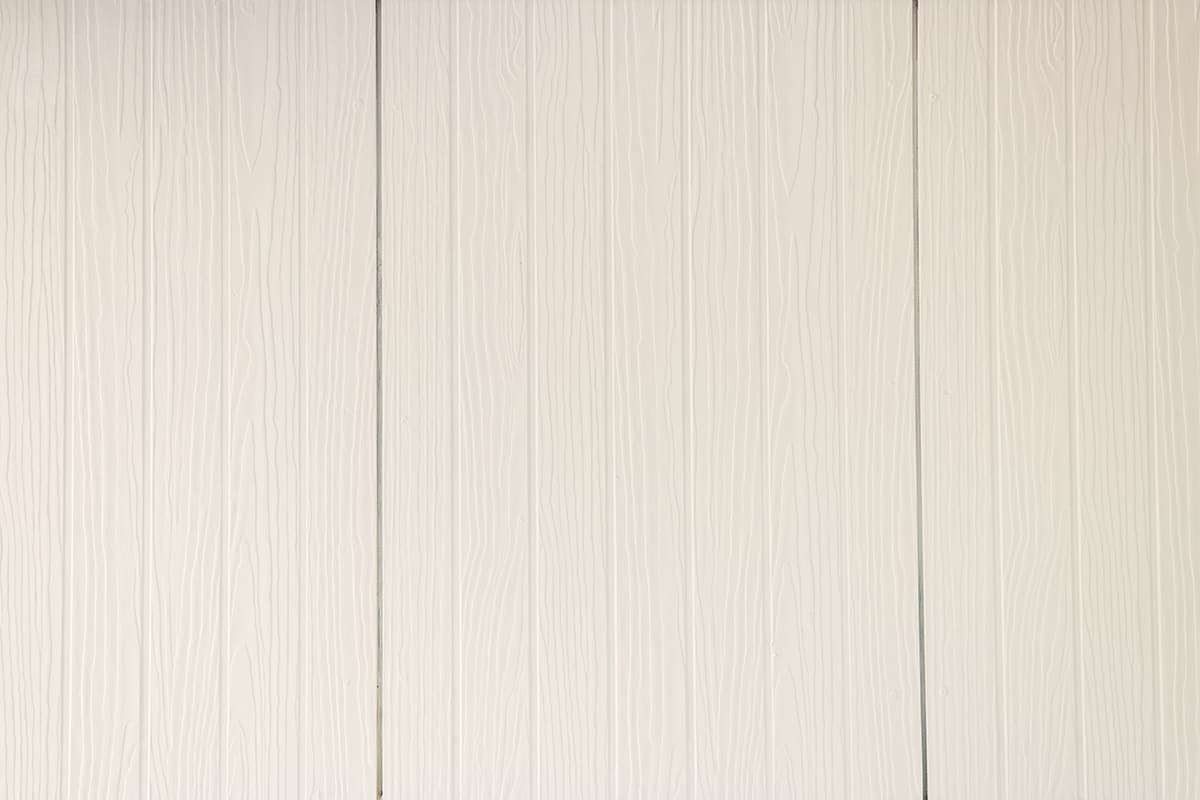
Hardie siding is known for its durability, insulation, thermal stability, and fire resistance. Unlike wood siding, which termites easily destroy, Hardie siding is resistant to termites and rot.
Hardie siding also aids the building's aesthetics better, as it is pre-painted before being sold. It is important to know that it is important to repaint the siding every 10-15 years to keep it looking good.
Hardie siding became a popular choice after asbestos sidings were banned because, when exposed to erosion, the asbestos surface can be a source of toxic fibers that cause lung cancer.
Hardie siding costs more and is more cost-effective than other conventional sidings. They are available in various sizes, including 4x8, 4x9, and 4x10 cards. They cost between $3 and $6 per square foot and $10,000 to $20,000 for a 1,600-square-foot building.
Can You Use Roofing Nails For Hardie Siding?
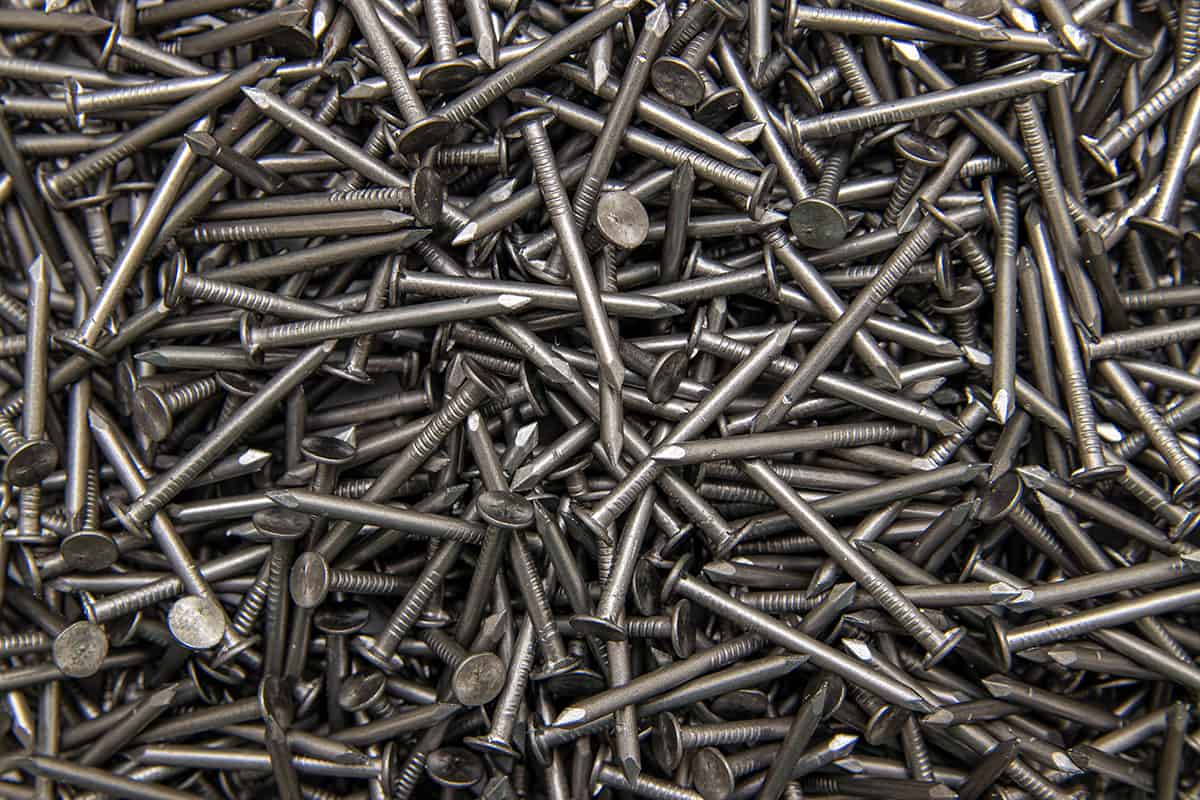
Most of the time, roofing and siding are done simultaneously during construction, so we tend to use roofing nails instead of the required siding nails.
While this often works well, it is incorrect because roofing nails are not designed for siding. When sidings are being installed in a building, there must be at least a ¼ inch of space between the Hardie sidings and siding nails.
This space helps to effectively achieve expansion and contraction due to temperature changes.
Roofing nails, however, are driven fully into the countertop or metal used. If you drive a roofing nail into a Hardie siding, you will crack or damage it completely.
Ultimately, you will spend more on repairing or replacing the sidings. That is why it is vital to use the correct nails when installing sidings to avoid unnecessary costs.
What Type of Nails Do You Use For Hardie Siding?
While installing a Hardie siding, we often wonder what kind of nails we should and shouldn’t use for holding the Hardie board to the building.
Hardie sidings are lightweight and very easy to break, so it is important to use the right nail when installing.
Hardie sidings have specific nails that should be used when siding your building. These nails are known as siding nails. Siding nails are built for this purpose because they are longer than most nails and are always galvanized.
The length of siding nails helps in creating the ¼-inch space required by Hardie boards to move to and fro as a result of thermal expansion due to temperature changes. These nails are also galvanized to prevent corrosion from taking place after installation.
Check out the siding nails on Amazon.
It is important to know that manufacturers of siding boards, such as the Hardie company, do not redeem the warranty on their product if it was damaged due to the wrong installation, such as wrong nailing.
Therefore, it is essential to always use the correct nails for Hardie siding, especially since roofing and siding nails are not interchangeable.
Is There a Difference Between Roofing Nails and Siding Nails?
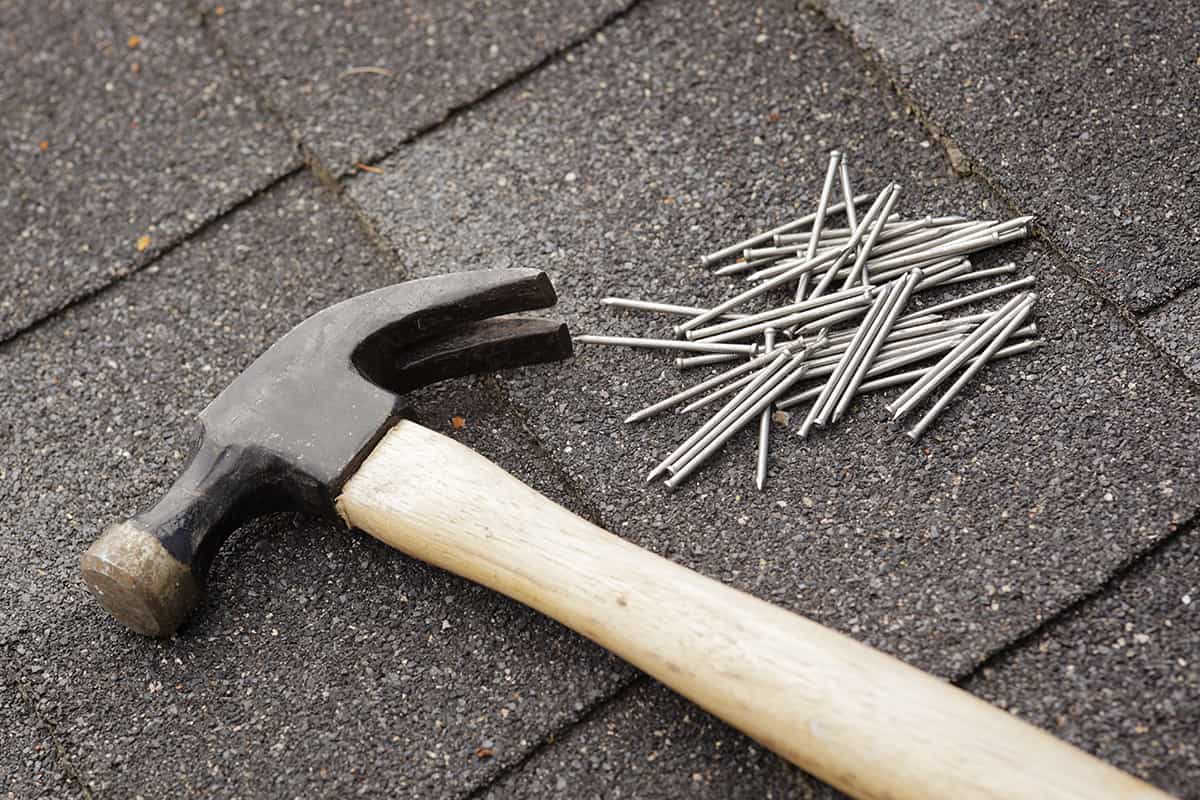
Both siding and roof nails are used on the exterior of the house. They are used to fasten building materials such as roofing and siding to a building. Hence, we tend to confuse them as the same and often wonder if there is any difference between them.
Yes, there are lots of differences between them, and this restricts them from being used for each other's purposes. Some of these differences are listed below:
Length
One of the major differences between siding and roofing nails is the length. Roofing nails have lengths ranging from 1 - 1¾ while siding nails have lengths ranging from 2 - 2 ½ inches long thus, siding nails are much longer than roofing nails.
The difference in length allows a space of ¼ inches when nailing Hardie siding using siding nails to allow movement between the siding and the building walls. On the other hand, roofing nails are completely nailed, which explains the short size.
Longevity
Siding nails are engineered to grip the siding for a lifetime; roofing nails, on the other hand, have large heads and a smooth shank which enables them to be removed at any point replacements are necessary.
While choosing a nail for either roofing or siding, you should choose the right type of nail that would meet your requirement at that point. Using the wrong nail could be detrimental to the work you are trying to do.
What Do You Fasten Hardie Board With?
Although knowing the right nail for siding is essential, it doesn't just stop there. After getting the nail, you have to fasten it into the siding to hold it in place, and you should also use the right fastener for this. Choosing a fastener for this purpose is very easy if done right away.
When fastening a Hardie board, it is recommended that you use hot dipped steel. Fastening can be done either using a siding nailer or nailing it by hand. With any of these methods, you get the work done.
How Long Should Hardie Siding Bolts Be?
Choosing bolts length for your Hardie siding is essential. Using the wrong size length can cause cracks in your siding and reduce the lifespan of the Hardie siding. So, when picking a bolt, always go for the best quality and length.
Bolts used for Hardie siding should be of length 0.121 inches and are galvanized or made from stainless steel. The depth of nails matters during installation, which is why the length is very important. Hardie siding bolts are meant to be fitted to the siding throughout the lifetime of the board.
What Can You Use a Roofing Nailer For?
Using proper equipment and tools makes work easy and more efficient; thus, getting the right equipment for your work should be prioritized at all times. While roofing a house, we require a lot of tools, and one of them is the roofing nailer.
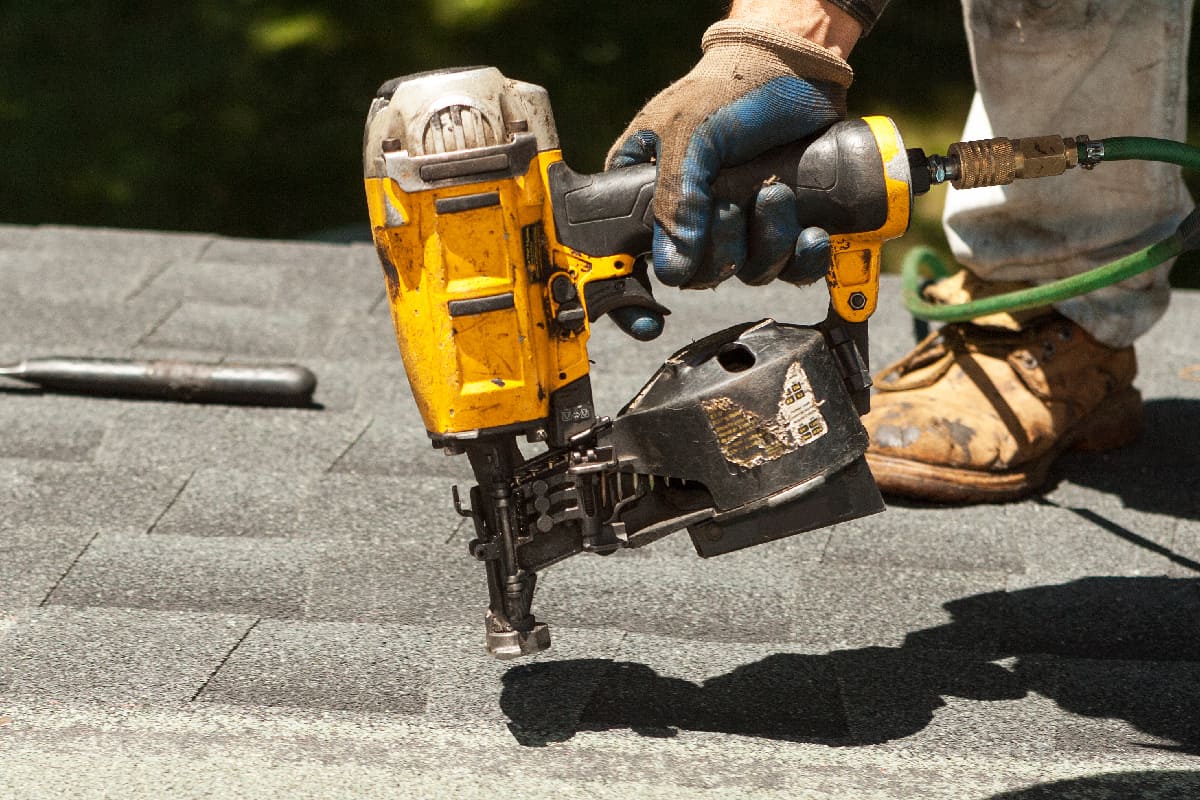
Roofing nailers or guns, also known as coil nailers, are used to drive nails into asphalt composite shingles. They are known as coil nailers because nails inserted into the nailer come in coils; that is, the nail goes into the coil like a belt.
Check out a roofing nailer on Amazon.
Compressed air is sent through a nailer to shoot the nails. The pressure required for this task is between 90 and 100 psi, and a compressor is required to provide compressed air. Roof-mounted nail guns are used to fire nails 1¼" to 2½" long.
The average cost of a roofing nail is between $150 and $300. Safety is required when using this tool, and you should wear a protective mask or goggles as you will be pulling your nails.
Also, ensure the nails are installed, as nails that are too deep or not deep enough can affect the installation.
Can You Use Galvanized Roofing Nails For Vinyl Siding?
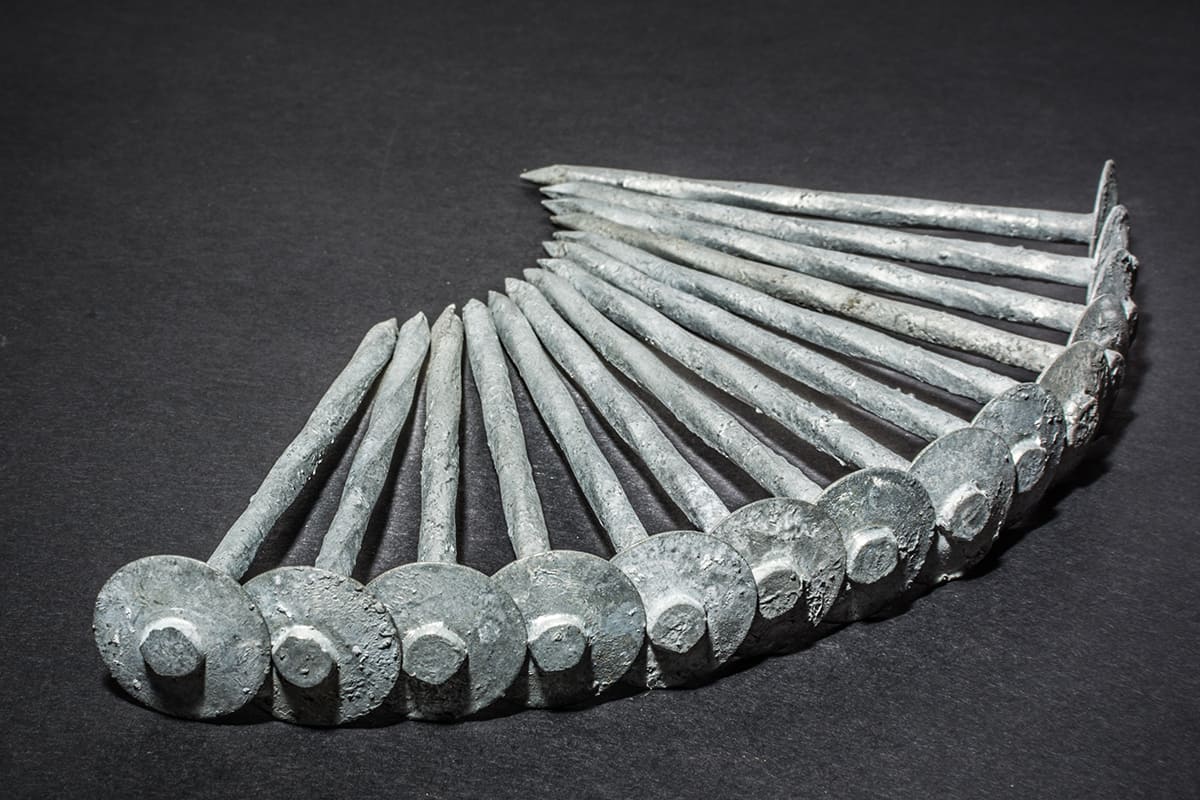
Unlike Hardie siding which are made up of fiber cement, vinyl siding is made from plastic and is also used as exteriors for buildings.
They come in various colors but are not as durable as the Hardie siding. Different siding materials have installation processes that should be followed duly to avoid drawbacks. Since roofing nails are unsuitable for Hardie sidings, could they be used with vinyl sidings?
Yes, galvanized roofing nails are appropriate for vinyl sidings. These galvanized nails are coated with zinc and are thus corrosion resistant. Galvanised roofing nails have pointed mouths which helps make nailing even easier.
Nails used for vinyl siding should be of length 1¼", a shank of ⅛" in diameter, and a nail head of 5/16". These specifications, especially the nail head size, are vital because the head of the nail should not be visible after installation.
Conclusion
Hardie sidings are very durable and cost-effective and should always be used with the fasteners, tools, and other equipment necessary to achieve the desired effect after installation. Depth of nails and types of nails should also be considered during installation.
To read more on home roofing and nails, check out these engaging articles:


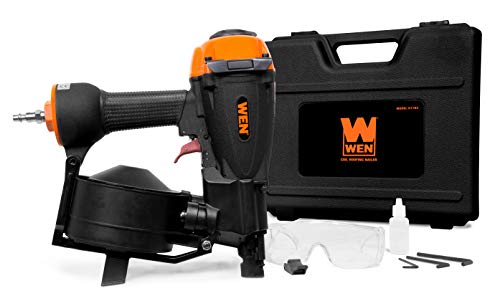
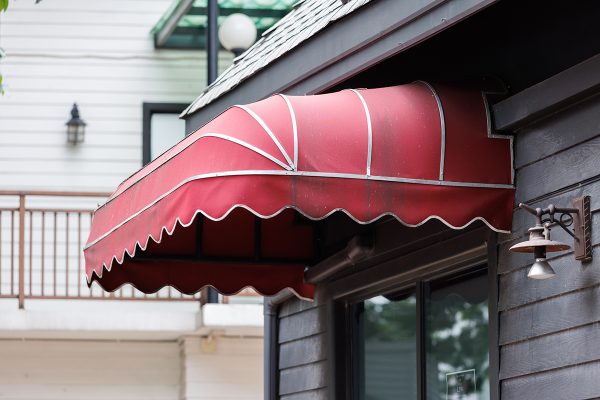
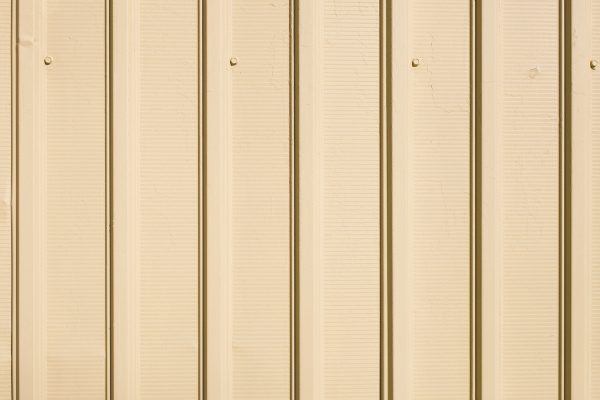
![Roof Gutter Cleaning Tips. Clean Your Gutters. Gutter Cleaning., Do Gutters Smell? [And What To Do About It]](https://houseoutside.com/wp-content/uploads/2022/10/Roof-Gutter-Cleaning-Tips.-Clean-Your-Gutters.-Gutter-Cleaning.-600x400.jpg)